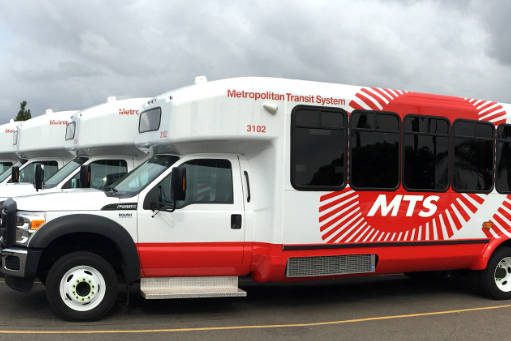Tuesday, April 23, 2019
WASHINGTON (April 23, 2019) – The Propane Education & Research Council is encouraging public transit agencies to apply for up to $85 million in competitive grant funds from the U.S. Department of Transportation’s Federal Transit Administration to purchase propane autogas transit vehicles as part of its “Low or No Emission (Low-No) Bus Program.”

The program sponsors the purchase or lease of low- or no-emission public transit vehicles that use advanced technologies for transit revenue operations, including related equipment or facilities. A low- or no-emission transit vehicle must significantly reduce energy consumption or harmful emissions when compared to a standard vehicle. Projects may also include the costs for workforce training and administration expenses.
“Grants like the Low-No Bus Program are great ways for fleet managers to take advantage of both the financial and environmental benefits of propane autogas buses,” said Michael Taylor, director of autogas business development for PERC.
“Not only will fleets be able to use the money to purchase new transit vehicles, refueling equipment and infrastructure, but they will also enjoy savings throughout
the lifetime of the buses because propane autogas offers the lowest total cost-of-ownership of any fuel.”
In 2018, the program received 151 applications and 52 projects were funded for a
total of $84.4 million. The largest amount awarded to a single applicant was
$2.29 million and no state received more than 5 percent of the total funding available.
The FTA will award grants based on the applicant’s need, project benefits, implementation strategy and capacity. Applications are due by May 14, 2019 and awarded funds will be available for use through September 2022. For more information or to apply for the funds, visit grants.gov, keyword search “lowno.”
For more information about the benefits of propane autogas buses, visit Propane.com/Fleet-Vehicles.
About PERC: The Propane Education & Research Council is a nonprofit that provides leading propane safety and training programs and invests in research and development of new propane-powered technologies. PERC is operated and funded by the propane industry. For more information, visit Propane.com.

The program sponsors the purchase or lease of low- or no-emission public transit vehicles that use advanced technologies for transit revenue operations, including related equipment or facilities. A low- or no-emission transit vehicle must significantly reduce energy consumption or harmful emissions when compared to a standard vehicle. Projects may also include the costs for workforce training and administration expenses.
“Grants like the Low-No Bus Program are great ways for fleet managers to take advantage of both the financial and environmental benefits of propane autogas buses,” said Michael Taylor, director of autogas business development for PERC.
“Not only will fleets be able to use the money to purchase new transit vehicles, refueling equipment and infrastructure, but they will also enjoy savings throughout
the lifetime of the buses because propane autogas offers the lowest total cost-of-ownership of any fuel.”
In 2018, the program received 151 applications and 52 projects were funded for a
total of $84.4 million. The largest amount awarded to a single applicant was
$2.29 million and no state received more than 5 percent of the total funding available.
The FTA will award grants based on the applicant’s need, project benefits, implementation strategy and capacity. Applications are due by May 14, 2019 and awarded funds will be available for use through September 2022. For more information or to apply for the funds, visit grants.gov, keyword search “lowno.”
For more information about the benefits of propane autogas buses, visit Propane.com/Fleet-Vehicles.
About PERC: The Propane Education & Research Council is a nonprofit that provides leading propane safety and training programs and invests in research and development of new propane-powered technologies. PERC is operated and funded by the propane industry. For more information, visit Propane.com.

